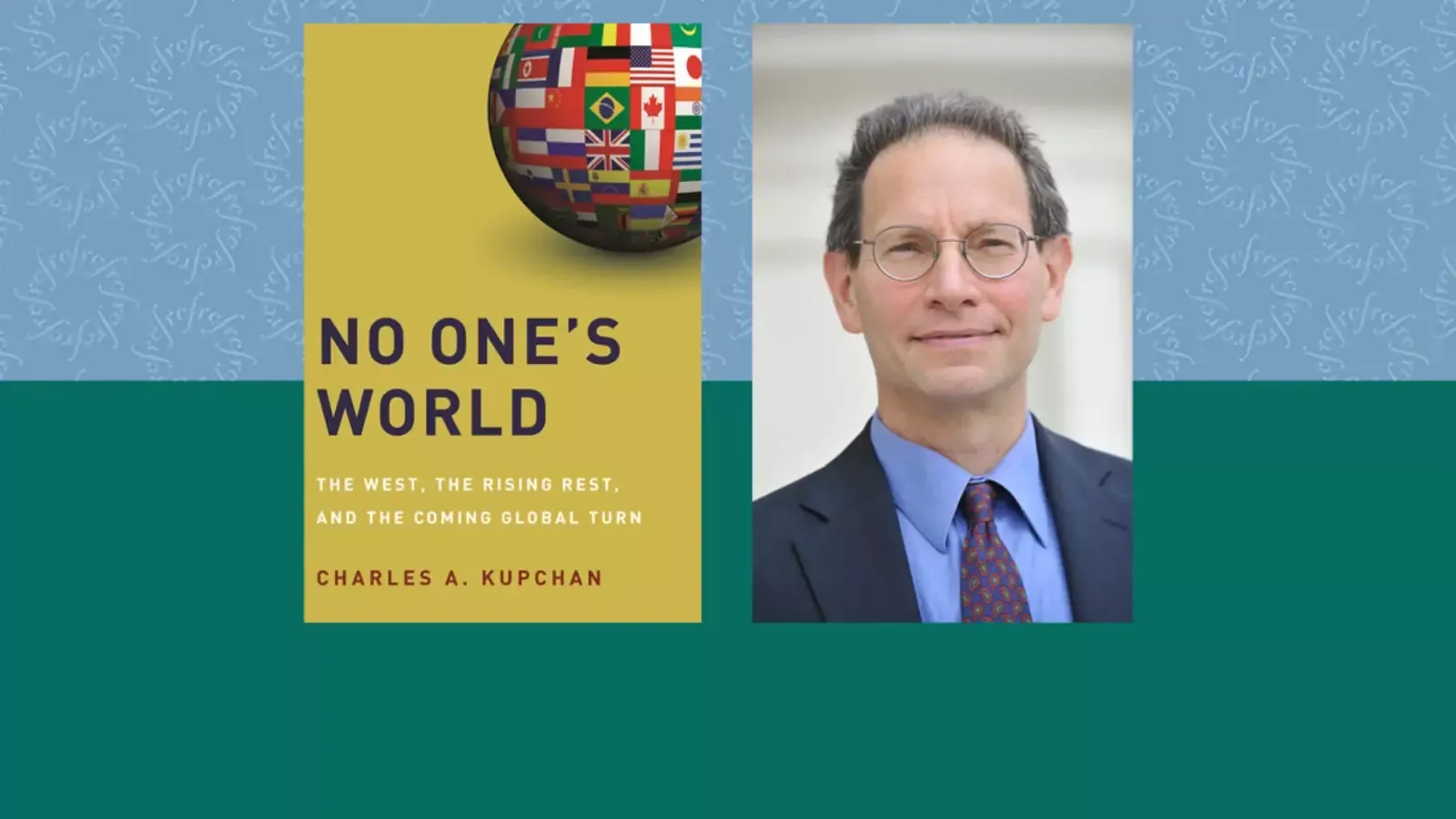No One’s World

Introduction
In this book, CFR Senior Fellow Charles A. Kupchan argues that the world is on the cusp of a redistribution of power in which no single state or region will dominate—or govern—the international scene. Teaching notes by the author.
Summary
Since the early nineteenth century, the West has dominated global politics. But today, the picture is changing. Rising powers—China, India, Brazil, and others—are catching up fast. The world is on the cusp of a redistribution of power that will alter the world's center of gravity. In this book, Charles Kupchan argues that this coming global turn heralds a future of ideological and political diversity, one in which the West will have to compete with alternative poles of power and alternative models of modernity. The result will be no one's world: a twenty-first century in which neither the United States, nor China, nor any other single power or region will dominate—or govern—the international scene.
No One's World provides a synthetic reading of global history and its implications for the current era of global change. The book serves as a global guide for the twenty-first century, examining competing political models and proposing a new bargain between the West and emerging powers on issues of governance, legitimacy, and commerce.
No One's World is a valuable resource for undergraduate and graduate students in courses on United States foreign policy and national security, contemporary international relations, and globalization.
Discussion Questions
Courses on U.S. Foreign Policy and National Security
- How has domestic political polarization influenced America's position in the international order?
- Do you believe that the United States is on course to lose its position as the preeminent global power? Why or why not?
- What strategies should the United States pursue to adjust to ongoing changes in the global distribution of power?
Courses on Contemporary International Relations
- Do you think the multipolar system predicted in No One's World will be more or less stable than the current international system?
- Which of the alternatives to the Western model of liberal democracy discussed in Chapter 5 (autocracy, theocracy, populism) do you believe is most durable and why?
- To what extent do a nation's domestic institutions determine its geopolitical alignments?
Courses on Globalization
- Is globalization likely to lead to the universalization of Western norms and models of governance? If so, why? If not, why not?
- Will the increasing economic clout of non-Western nations impede or advance the prospects for an effective system of global governance?
- What kind of institutions and modes of governance are best suited to address global problems (e.g. global climate change, infectious disease, transnational terrorism, financial volatility)?
Essay Questions
Courses on U.S. Foreign Policy and National Security
- Explain and discuss the strategies in the book for reviving American and European power. Weigh the effectiveness of these strategies, taking into account their repercussions for non-American and European countries.
- Discuss changes in the role of the United States in international affairs over the past twenty years. In your analysis, consider whether these changes arose from structural factors, or from specific policy decisions and domestic changes.
Courses on Contemporary International Relations
- What were the most important factors in the West's rise from 1500 to 1800? Discuss the ways in which these factors were influential.
- Discuss shifts in the wielding of international power during the late twentieth and early twenty-first centuries. What were the consequences of these changes?
Courses on Globalization
- Why, according to No One's World, should we expect "multiple versions of modernity"? Why does Kupchan expect rising powers to follow distinct paths to governance and prosperity?
- What are the most important norms of global governance in the twenty-first century? What can be done to help nations work toward a consensus on adopting these norms?
Supplementary Materials
Brzezinski, Zbigniew. Strategic Vision: America and the Crisis of Global Power. New York: Basic, 2012.
Fukuyama, Francis. The End of History and the Last Man. New York: Avon, 1992.
Gelb, Leslie H. Power Rules: How Common Sense Can Rescue American Foreign Policy. New York: HarperCollins, 2009.
Haass, Richard N. Foreign Policy Begins at Home: The Case for Putting America's House in Order. New York: Basic, 2013.
Ikenberry, G. John. Liberal Leviathan: The Origins, Crisis, and Transformation of the American World Order. Princeton, NJ: Princeton University Press, 2011.
Kagan, Robert. "Not Fade Away: The Myth of American Decline." New Republic, February 2, 2012.
Kagan, Robert. The World America Made. New York: Knopf, 2012.
Kaplan, Robert D. The Revenge of Geography: What the Map Tells Us About Coming Conflicts and the Battle Against Fate. New York: Random House, 2012.`
Kupchan, Charles A. "Second Mates." National Journal, March 17, 2012.
Nye, Joseph S. Jr. The Future of Power. New York: PublicAffairs, 2011.
Zakaria, Fareed. The Post-American World. New York: Norton, 2009.